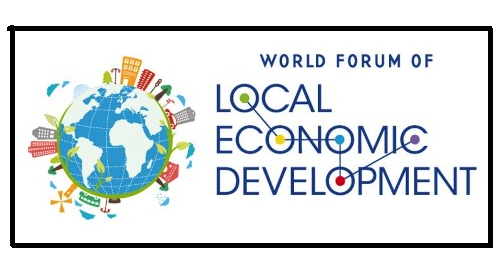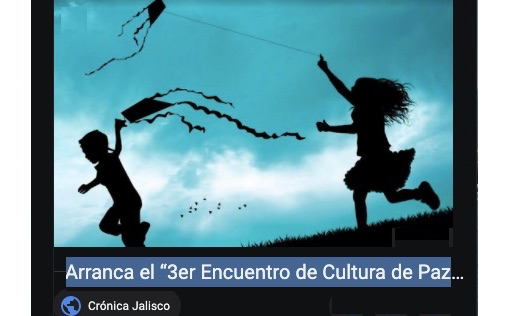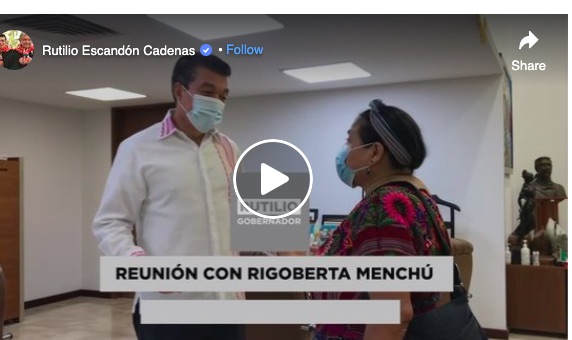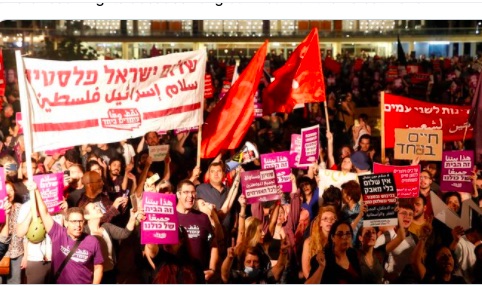FREE FLOW OF INFORMATION
Here are events and application deadlines in June that were previously listed on the CPNN page for upcoming virtual events. Where possible links are provided to recordings of the events. Unless otherwise noted the events are in English.

1 junio, 10:35 AM – 12:05 PM Argentina, 15:35 España
Justicia Económica, Desarrollo Local, Convivencia y Paz (Sesión 5 – Plenaria)
El objetivo de esta sesión es abordar la importancia que tienen las ciudades y territorios y las políticas públicas impulsadas desde sus instituciones para paliar las desigualdades económicas y, de esta manera, colaborar a fortalecer el clima de convivencia y paz.
IDIOMAS ING ESP FR
— PONENTES :
Ana Barrero Tiscar
Daniel Alejandro Passerini
Franco Ianeselli
Jhon Alexander Rojas Cabrera
María Carolina Duran Peña
Peter Knip
Samuel Rizk
— ORGANIZADORES:
PNUD
— YouTube recording
Wed, June 2, 2021 – noon Eastern Standard Time (USA)
Do Nonviolent Movements Aid the Peaceful Resolution of Civil War? Findings from a Global Analysis
The International Center on Nonviolent Conflict (ICNC) is pleased to host Luke Abbs as he discusses his forthcoming monograph, “The Impact of Nonviolent Resistance on the Peaceful Transformation of Civil War.” Events in the last ten years has shown the extraordinary impact that nonviolent resistance can have on political change. Echoing this sentiment, research shows that nonviolent campaigns against the government have a strategic advantage over armed rebellions and are more successful in achieving regime change and democratization.
— YouTube recording
Jun 3, 2021 – 05:00 PM España
La construcción de la paz desde la cooperación transfronteriza
En este cuarto diálogo se trata de generar conversación en torno a cómo la cooperación transfronteriza puede proporcionar herramientas concretas, no sólo en término de seguridad, de políticas estatales, sino también de los gobiernos regionales y locales y de los actores locales de las comunidades. Las zonas fronterizas pueden ser lugares de oportunidades para el desarrollo y la construcción de paz.
— Presentan
AEXCID – Ángel Calle Suárez
PNUD – Johannes Krassnitzer
— YouTube recording
Jun 3, 2021 – 08:00 PM in Eastern Time (US and Canada)
Eyewitness Syria: Resisting US Imperialism
On May 26, 2021 14 million Syrians voted in Presidential elections, overwhelmingly reelecting President Bashar al-Assad. An independent, international delegation of observers called the election “the legitimate, democratic expression of the Syrian people” and noted that “for many Syrians, the election represents the imminent ending of the war, the defeat of foreign plots, and hope for the future.”
— Join International Action Center organizer Ted Kelly, along with others who participated in the delegation, for an eyewitness account of the situation in Syria as the country continues to push back U.S. intervention, reasserts its sovereignty and rebuilds after years of imperialist war.
— YouTube recording
Friday 4 June, 4:00 – 5:30pm PM Jerusalem-Palestine Time
Planning for sustainability in the Urban Context
Palestine Action for the Planet invites you to join us for weekly conversations towards a better future for humans and nature. For this week, we are honored to have Hiba Burqan lead the discussion on “Planning for sustainability in the Urban Context: Towards a new strategic planning model. Heba Burqan is a strategic planning master’s student, working towards investigating tools and methods in urban sustainability and development. As an architect with work experience in architectural firms, Heba investigated the last 5 years in developing exhibits and exhibitions at A.M. Qattan Foundation, and today she aspires to take this experience and utilize it in the field of community design towards sustainable urban development. We also talk about our responsibility to safeguards our environment in honor of world environment day
— Register here
Jun 9, 2021 02:00 PM in Johannesburg
Ending Gender Discrimination: Equitable access to land and ownership for young women in Africa – Towards Gender Equality
Ending Gender Discrimination is demand 2 of the Africa Young Women Beijing+25 Manifesto, but also a widespread demand across the African continent, as it remains a prevalent reality. . . The webinar, co-hosted with SAYoF, will focus more particularly on a sub-demand that has emerged during consultations with young African women on the thematic of ending gender discrimination: The need to for equitable access to land ownership ensuring economic independence and personal empowerment. Young women make a stand against gender-discriminatory laws, customs and practices regulating inheritance and those which impede young women’s fair access to ownership of land and natural resources.
— The format of the webinar will be a hybrid between moderation and open discussion (Q&A).
— zoom registration
June 9, 9 p.m. Eastern Standard Time (USA)
Asia-Pacific Elites: Money & Trade, and Foreign and Military Policies
State foreign and military policies don’t necessary represent the interests of a nation’s people. In the push-pull between ties with China and the United States, the foreign and military policy policies of South Korea., India and Taiwan, are powerfully influenced by the financial and trade ambitions of their elites. elites have shaped those policies..
— Speakers
— Youkyoung Ko is a consultant for Women’s International League for Peace and Freedom(WILPF) and women-led Korea Peace Now! Campaign, and a standing executive committee member of the Korea Peace Appeal Campaign. She is an expert on impacts of the US-ROK alliance and US military presence in South Korea.
— Andrew Lichterman is a policy analyst and lawyer with the Oakland,
California based Western States Legal Foundation and a member of the
Coordinating Committee of United for Peace and Justice.
— Brian Hioe is a founding editor of New Bloom and former Democracy and Human Rights Service Fellow at the Taiwan Foundation for Democracy
— Organized by the Asia Pacific Working Group – https://www.cpdcs.org/
— Recording of the event
June 12, 2021 02:00 PM in Eastern Time (US and Canada)
Voices of the International Peace Movement
From nuclear weapons abolitionists in Japan to Belgians working to reduce military spending to meet urgent human needs and stanch climate change, Iranian Americans working to build a just society and prevent conflict between the U.S. and Iran., and Spaniards building an integrated justice and peace movement, we have allies and partners around the world. They and thousands of others will be gathering in Barcelona and online this October. In preparation for this World Conference, join us in conversation on June 12 where you can meet, learn from, and build partnerships with them in our Voices of the International Peace Movement.
Speakers:
Reiner Braun – Executive Director, International Peace Bureau, Berlin
Chloe Meulwaeter – Centre Delas, Barcelona
Assal Rad – Senior Research Fellow, National Iranian American Council
Quique Sanchez – International Peace Bureau, Barcelona
Alicia Sanders-Zakere – International Campaign to Abolish Nuclear Weapons, Geneva
Yayoi Tsuchida – Japan Council against A- & H- Bombs, Tokyo
Tom Unterrainer – Bertrand Russell Peace Foundation London
— Recording of the event
Sunday, June 13, 2pm-4pm Eastern Standard Time USA
Remembering Ramsey Clark, hosted by the International Action Center
Ramsey Clark founded the International Action Center in 1992 as a structure to oppose U.S. wars of aggression and occupation, defend liberation struggles, defend political prisoners. IAC militants joined Ramsey Clark’s international delegations that defied the blockade of Cuba, the war and sanctions on Iraq, the U.S.-NATO war on Yugoslavia, the kidnapping of then President Aristide in Haiti or joined the wave of resistance then sweeping Latin America.
— Ramsey Clark guided the production of hundreds of books, videos, mass meetings, internet campaigns and demonstrations that the IAC organized with him. We are determined to continue this vital work and to make available many of his books to a wider audience.
— YouTube recording
Sunday June 13:3pm-6:30pm Central European Time
Global NATO: a Threat to Peace – Online protest action
Since the end of the Cold War and the dissolution of the Warsaw Pact, NATO has developed into a global alliance through expansion into Central and Eastern Europe, conducting destabilizing military interventions in the ‘war against terror’ and forging bilateral and multilateral alliances worldwide. At the NATO summit, the report “NATO 2030: United for a new Era” will be discussed. In this webinar we’ll analyse NATO as a global militarist actor.
— Interpretation: English, French and Spanish
— facebook recording
Monday, June 14, 2021 7:00 PM – 8:00 PM Eastern Standard Time (USA)
Finding Common Ground Turning Racism & Extremism Into Hope & Healing
Join Common Ground Committee and sponsoring partner Bridge Alliance for a special virtual event to kick off the National Week of Conversation 2021. Our guest Daryl Davis, an award-winning Black musician, race reconciliator and renowned lecturer, has used the power of human connection to convince hundreds of people to leave white supremacist groups. Fellow guest Ryan Lo’Ree, a former white supremacist and extremist, is an interventionist working to deradicalize people who have been lured into extremism and white supremacy. Register now to join them for a Zoom conversation moderated by New York Times columnist David Brooks on strategies that work to combat hate, and how we can all play a part.
— YouTube recording
Monday, June 14 – 7pm to 8 pm EST
Wednesday, June 16 – 7pm to 8pm EST
Thursday, June 17 – 12pm to 1 pm EST
Discussion groups for United States: Root Causes: How Did We Get Here?
The growing divisions and distrust in our nation has led us to a dangerous point for our democracy. To put our country on a better course necessitates understanding how we got here in the first place. FixUS is hosting several small discussion groups throughout the National Week of Conversation on June 14, 16, and 17th where participants will engage with one another on what they view as the top underlying political, cultural, economic, and technological reasons for our current environment. Groups will have varying backgrounds and perspectives, and you can indicate which sessions you may be interested and able to join (via Zoom) below.
— If you’d like to see more about our work, please visit our website. If you have questions, please email fixus@fixusnow.org. Thank you!
— Please fill out the form here to participate in a discussion group.
Wednesday, June 16 • noon-1:30pm Eastern Standard Time (USA)
How Civil Resistance Movements Acquire Material and Other Resources They Need: Case Studies from Northwest Mexico and Palestine Area C
The International Center on Nonviolent Conflict (ICNC) is pleased to host the authors of two forthcoming case studies on materials resources: Chris Allan and Scott DuPree, the authors of Social Movements and Material Resources in Northwest Mexico, and Mahmoud Soliman, the author of The Mobilization of Material Resources and Palestinian Nonviolent Resistance in the Occupied Territory of Area C.
— YouTube recording
Thursday June 17 at 7 p.m. Eastern Standard Time (USA)
Voices Against Empire: A Discussion on Black Radical Media
Join the Black Alliance for Peace at for this discussion. We will explore the radical traditions in Black emancipatory journalism and learn about how revolutionary struggle can be supported with media that share a vision for liberation.
— YouTube recording
Thursday, 17 June at 9:00am Costa Rica time
Integral design and regenerative projects through the lens of the Earth Charter
This webinar will offer unique perspectives on regeneration through Integral Design and the Earth Charter in Action. Our guest speakers will share examples of how regenerative climate parks and education programmes based on the Earth Charter are addressing environmental and social challenges in South Africa and Lesotho.
— Speakers: Bjorn Heyerdahl and Janika Heyerdahl
— Bjorn will share lessons in leadership on global citizenship from his recently published book The Midgard Viking Expedition – the Search for Intelligent Life on Earth.
— Janika will share her experience in connecting education, food security, regeneration with the Earth Charter Ethics.
— YouTube recording
Jun 18, 2021 04:00 PM Central European Time
Intergenerational Dialogue Pre-GEF Paris Forum – Young Women Demands at GEF – Ticking a box or Taken Seriously?
Fostering intergenerational co-leadership and dialogues is a pillar as part of Nala’s FEM objectives, as guided by the 10th Demand of the Africa Young Women Beijing+25 Manifesto calling for intergenerational co-leadership. This includes fostering African Young Women participation in intergovernmental spaces and inclusion towards the Decade of Action.
— The intergenerational dialogue at the dawn of the Generation Equality Forum will serve as a platform to converse with youth on specific thematics which touch their livelihoods on the one hand and with African elders who have committed their work to solving the existing gender equality gaps.
— The aim of the webinar is to provide an intergenerational platform as we head towards the Generation Equality Forum, and put an emphasis on the urgency for the institutionalization of co-leadership for young women’s full and effective political participation and equal opportunities for leadership at all decision making levels in the political, social, cultural, economic and public dimensions of life, while strengthening young women’s voices and creating spaces and resources for their agendas.
— Facebook recording
Jun 18, 2021 12:00 PM in Eastern Time (US and Canada)
From Dialogue to Systemic Change
Dialogue can bridge divides and decrease polarization—but can it lead to systemic change? Search for Common Ground has a 40-year track record of working on the world’s most challenging conflicts and translating dialogue into collective action and enduring change. Join us on June 18th, 12pm ET to hear personal insights about how to start with bridge-building and end with a transformed society.
Our speakers:
Shamil Idriss, CEO, Search for Common Ground
Nawaz Mohammed, Country Director, Search for Common Ground – Sri Lanka
Claudia Maffettone, Track II Mediation Program Manager, Search for Common Ground
— Register here
Jun 23, 07:00 PM Eastern Standard Time (US and Canada)
Preparations for Nuclear War with China over Taiwan – Then and Now
Daniel Ellsberg has done it again! 50 years after his courageous whistleblowing release of the Pentagon’s secret Vietnam War history, The Pentagon Papers, he has again shaken the nation and the world with a new revelation. It has critically important implications for the new Cold War confrontation with China and the debate over the possibility over Congress or the the Biden Administration adopting a No First Use nuclear policy.
— For more than 60 years the government has kept secret its 1958 willingness to completely sacrifice Taiwan in order to save it. During that Taiwan crisis, the Eisenhower administration prepared and threatened to attack China with nuclear weapons. Ellsberg’s revelation demonstrates that Eisenhower and Dulles were willing to accept a retaliatory Soviet nuclear attack on Taiwan following U.S. nuclear bombing of China.
— As the U.S. and China ratchet up tensions over Taiwan, Ellsberg asserts that the Pentagon must again be debating the possibility of sacrificing Taiwan and its people to save them.
— Sponsored by Massachusetts Peace Action, the Campaign for Peace Disarmament and Common Security, and the Committee for a Sane US-China Policy
— Youtube recording
Thursday, June 24, 2021 8:00pm Eastern Daylight Time (USA)
Ending America’s Forever War in Korea
On the 71st anniversary of what is officially recognized as the start of the Korean War, World BEYOND War will present a panel discussion with preeminent Korea historian Bruce Cumings, Korean-American peace activist Christine Ahn, and Youngjae KIM, a peace activist based in Seongju, South Korea. They will reflect upon the neglected history and human costs of the unresolved war and discuss what is needed to finally bring closure to America’s oldest, endless war.
— This event will include simultaneous translation in Korean.
— YouTube recording
Saturday, 26th June, AGM 1:00 – 16:30, Conference 17:00 – 20:00 CEST
Peace-Building in a post-COVID-19 World
Uniting for Peace is pleased to invite you to the AGM and Spring Conference 2021 on “Peace-Building in a post-COVID-19 World”
Speakers
Chair – Rita Payne, President Emeritus, Commonwealth Journalists Association
Molly Scott-Cato, Former Member of the European Parliament
Vijay Mehta, Author and Chair, Uniting for Peace
Keith Best, Former Member of UK Parliament
Brian Cooper, Vice President, Uniting for Peace
Ahmad Shahidov, Chairman, Azerbaijan Institute for Democracy & Human Rights
Frank Jackson, Vice President, Uniting for Peace
— Meeting Details: The meeting will allow 100 partricipants on first come first serve basis.
— YouTube recording
June 28 and 30
THE IMPORTANCE OF CLIMATE LITIGATION. INTRODUCTION TO THE ICJ INITIATIVE. LESSONS FROM THE ICJ ADVISORY OPINION ON NUCLEAR WEAPONS
Session A: Americas/Europe/Africa/Middle East, Monday 28 June 2021, 3pm Central Europe
Session B: Asia/Pacific, Wednesday June 30, 9am Central Europe Time
— The Normandy Chair for Peace on Law and Future Generations is cooperating with World’s Youth for Climate Justice (WYCJ) on an initiative of WYCJ to achieve an advisory opinion from the International Court of Justice (ICJ) on the issue of climate protection/stabilisation and the rights of future generations.
— This webinar (the first of four global webinars over the next five months) will cover the role of climate litigation, introduce the campaign for an ICJ case on the climate, and explore lessons learned from the historic ICJ Advisory Opinion on the Legality of the Threat or Use of Nuclear Weapons.
— Click here to register for Session A
— Click here to register for Session B
Wednesday, June 30 • noon-1:00pm Eastern Standard Time (USA)
Webinar: How Does Trust Shape Civil Resistance? Initial Evidence from Africa
The International Center on Nonviolent Conflict (ICNC)is pleased to host Dr. Jacob S. Lewis, the author of the forthcoming monograph Trust and Mobilization in Africa’s Third Wave of Protest. Democratic backsliding around the world has highlighted the importance of nonviolent civil resistance as a method of protecting and seeking democracy. One core component in both collective action and democracy is social trust, yet there has been comparatively little research on the role that social trust plays in shaping the onset and maintenance of civil resistance. Drawing evidence from Africa, this study examines two questions. First, do higher levels of social trust correlate with higher willingness to participate in nonviolent protests? Second, does trust correspond with increased preferences for nonviolent action? The study then verifies these individual-level findings by examining real-world data on proportional levels of violent and nonviolent conflict.
— YouTube recording
















